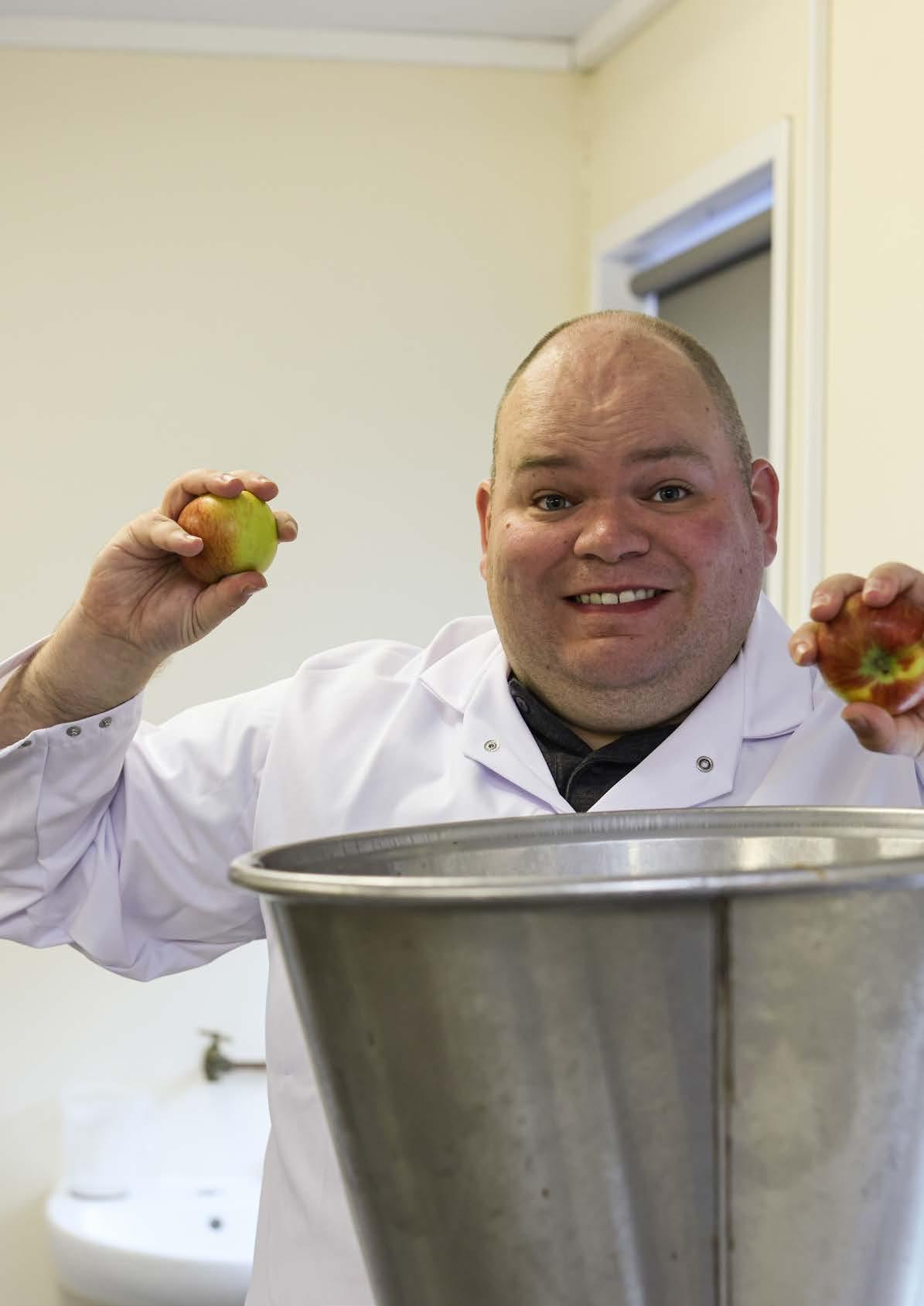




As we approach the end of another fantastic year, it’s time to reflect on our achievements and look ahead to some incredible opportunities.
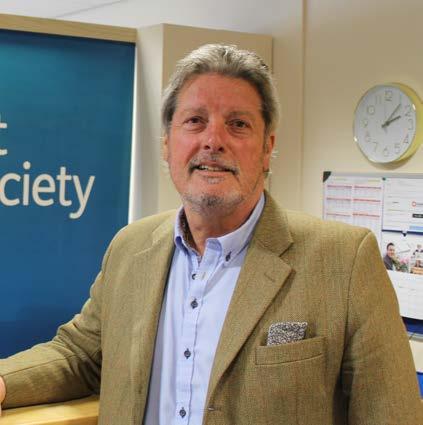
John Phillipson Chief Executive Officer
At the North East Autism Society we’re always striving to break new ground, both metaphorically and physically.
At New Warlands Farm we are primed and ready to begin construction on our new visitor attraction and training hub. The development, which will provide 70 placements for autistic and neurodivergent people each year, will play host to a farm shop, a cafe, a cider press, and a play barn.
You can read more about the exciting transformation as part of our Growing Futures appeal on page 8.
Our inaugural Hidden Barriers documentary –Autism and Airports – received resoundingly positive feedback from the autistic community, the aviation industry, and influential individuals alike.
The second episode in the series, which aims to highlight the challenges that autistic people face in their everyday lives and what organisations can do to remove them, focuses on autism and GPs.
We unveiled our brand-new employment programme, Working Together North East, with the primary purpose of empowering individuals and enabling them to thrive in employment
through bespoke support, accessibility, and coaching. You can read more about it on page 10.
And lastly, while we’re on the topic of new ground, I will be taking my first foray into brand new territory in 2026 – retirement.
For the past 20 years I’ve had the immense privilege of working with thousands of dedicated and hardworking people at NEAS.
In my time as Chief Executive, I’ve seen our charity grow from our roots in Tyne and Wear, to a truly regional organisation, opening new schools and homes in County Durham and Teesside.
It has been a great honour to be at the helm of NEAS throughout this period, but the time has come to take a step back.
I’m fully confident that NEAS will continue to have a profoundly positive impact on the lives of the children, young people, and adults we support for many years to come.
Thank you, as always, for your incredible support.
John Phillipson
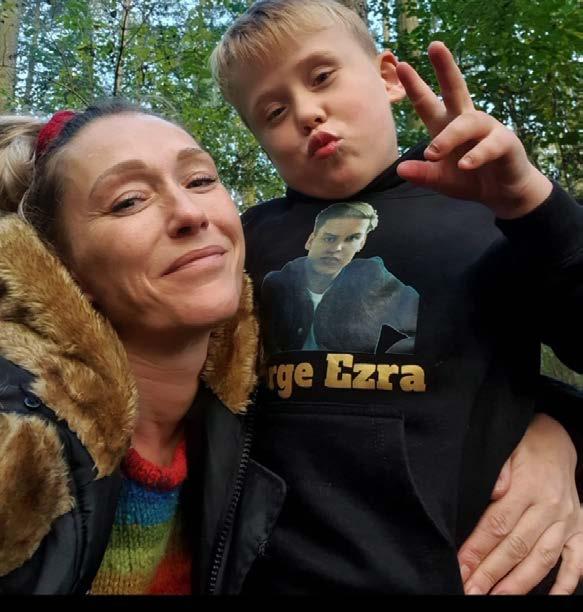
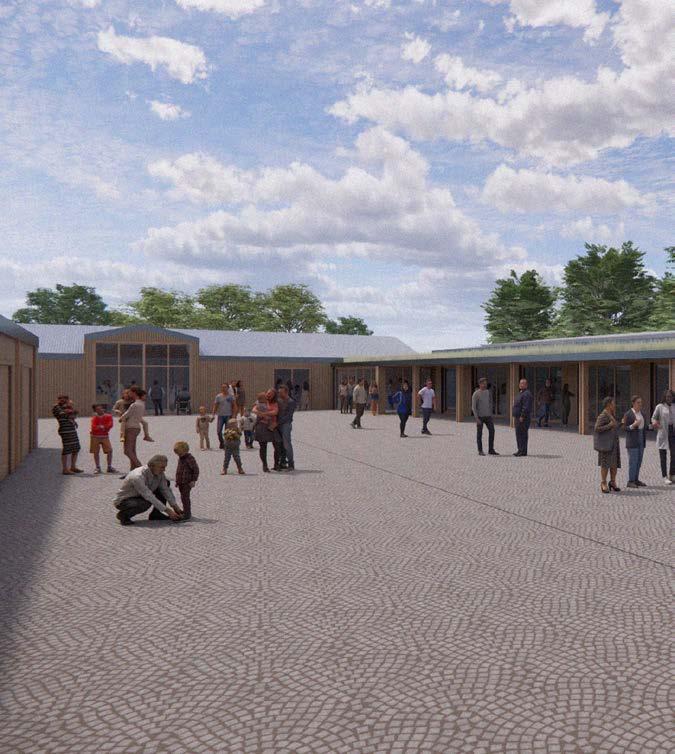
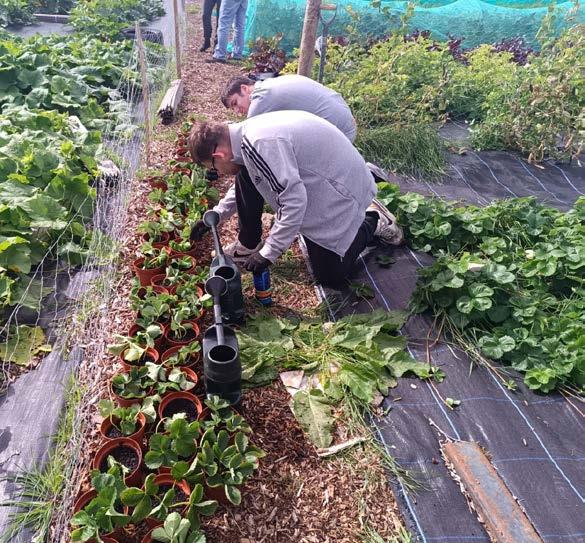
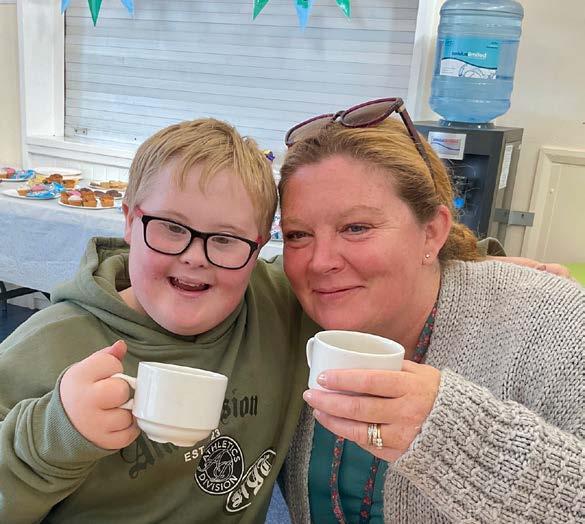
The countdown to Christmas is on! Check out some of our key dates and get involved in the festivities.
Hidden Barriers
Our groundbreaking documentary series takes to the skies as we investigate the challenges that neurodivergent passengers face at airports.
Growing Futures
Exciting updates as construction is set to begin at New Warlands Farm.
Employment Futures
Working Together North East, the latest project from our Employment Futures service, launches.
Festive Fundraising
12 festive fundraising ideas to spread love and support this Christmas period.
ADHD: Mythbusters
Separate the fact from the fiction this ADHD Awareness Month.
Highlights of the Quarter
A community comes together, our Autism Activists take on a new project, and Acceptance Awards get handed out. We’ve had a lot to celebrate over the last few months.
North East Autism Society Unit 15
0191 410 9974 info@ne-as.org.uk www.ne-as.org.uk
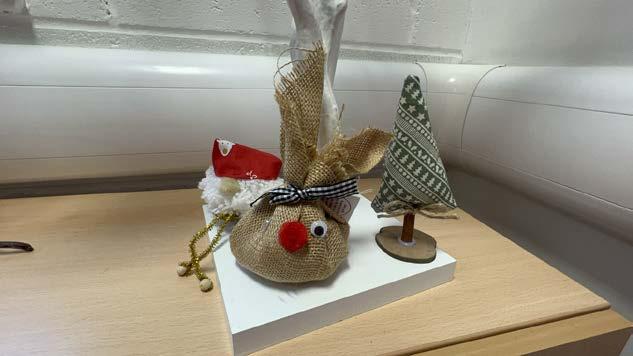
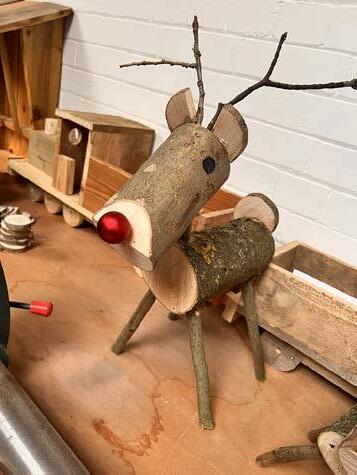

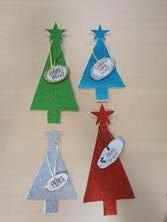


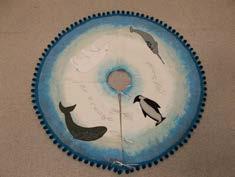


Get ready for a busy festive season! Our winter fetes are the perfect opportunity to see the incredible work of the children, young people, and adults in our services — and pick up some unique handmade gifts along the way.
Emsworth Christmas Fete
Date: Friday 12th December
Time: 1:00–3:00pm
Kiora Hall Winter Fete
Date: Saturday 29th November
Time: 11:00am–3:00pm
New Warlands Farm
Christmas Market
Date: Saturday 29th November
Time: 10:00am–2:00pm
Fancy running your own festive fundraiser?
Get inspired and find practical tips in our Make Christmas Count feature on page 12. Whether it’s a coffee morning, craft sale, or online event, every effort helps our community thrive.
We’re on the countdown to Christmas and have a list of festive activities you don’t want to miss!
This festive season, why not choose a local cause to support? Choosing a local charity to support at Christmas not only makes your gifts extra special, but it also helps support the amazing work happening right here in our region.


Jolly Jumper Day
Spread some cheer, wear your favourite festive jumper and make a donation to NEAS!
Date: Thursday 11th December
Sign up: ne-as.org.uk/event/jollyjumperday
Great Festive Bake Off
Whip up something delicious and join in the festive baking fun.
Date: Friday 19th December
Sign up: ne-as.org.uk/event/festivebakeoff
If you’re looking to take part in one of our festive events, contact the fundraising team on fundraising@ne-as.org.uk to receive your fundraising packs and toolkits!
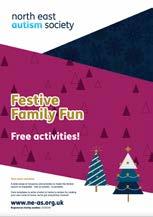
Other upcoming events
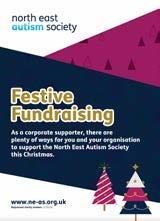
Keep an eye on our full events calendar for the latest activities, fundraisers, and ways to get involved: www.ne-as.org.uk/our-events
Whether you join us for a fete, a fundraiser, or a fun festive day, there’s something for everyone and every event helps support the amazing work we do.
the travel industry.

The NEAS film, called Hidden Barriers: Autism and Airports, investigates the challenges that neurodivergent passengers face at airports, from crowds, queues and noise to being searched at security.
It called on the aviation industry to put simple steps in place to make flying more accessible to those with hidden disabilities.
The film has caught the eye of Jet2 and Jet2 Holidays, the UK’s largest tour operator, which hope to share it with staff and passengers who book assisted travel.
Jet2’s accessibility chief, Steve Wilson, described the film as “genuine and informative” and said it “clearly highlights steps the industry needs to take”.
Meanwhile, TUI, the country’s second largest tour operator, said it would share the film with its accessibility team, as well as its staff Neurodiversity Network and its Accessible Holidays Forum.
The film is being shown to members of a Governmentappointed taskforce, chaired by Baroness Tanni GreyThompson, which is working to make air travel more accessible.
And it has caught the eye of celebrity supporters. Fern Brady, the Scottish comedian who is autistic, posted a clip on her Instagram Stories, while TV personality Charlotte Crosby asked her two million followers on Facebook to watch and share the “amazing” documentary.
Hidden Barriers: Autism and Airports found that airports offered a range of support for neurodivergent passengers and families, but that it varied widely and it was difficult to find out what was on offer.
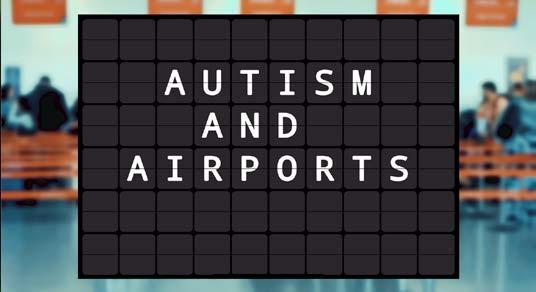
Passengers have to book assisted travel through their airline, but too often those bookings don’t get through to the airports and people arrive to find no support in place.
John Phillipson, NEAS chief executive, said:
“There is some fantastic assistance at airports, especially in the UK, but too often it is inconsistent or let down by poor communication.
“We are really pleased that the air travel industry is taking these issues so seriously and so willing to learn from people with lived experience on how things might be improved.”
Hidden Barriers will be a series of short films looking into the challenges that neurodivergent face in their everyday lives, and suggesting how organisations can make their services more accessible.
The next film in the series will be about GPs, after a report found that eight in 10 autistic people find it difficult to go to a doctor’s surgery.
We will be asking people to share their thoughts and experiences with us.
If you would like to get in touch, please email info@hiddenbarriers.co.uk or send us a message on 07443 824903
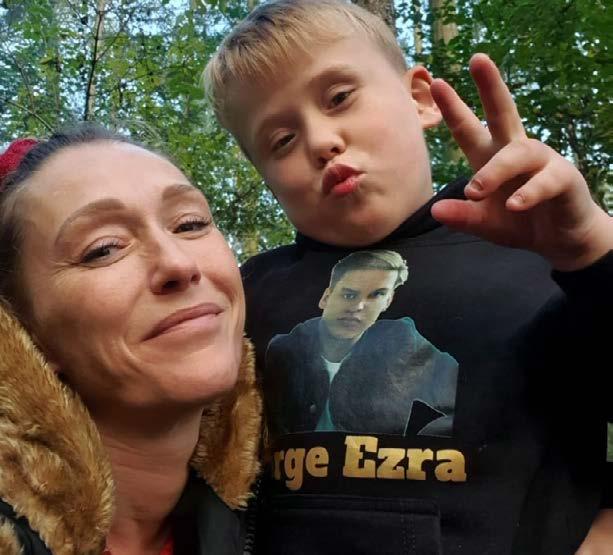
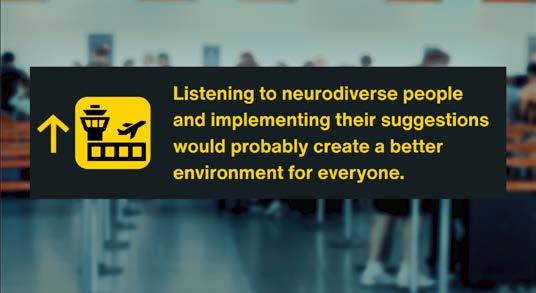
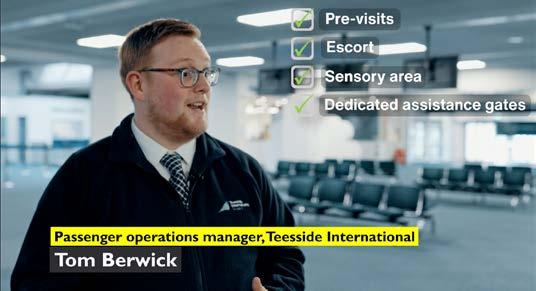
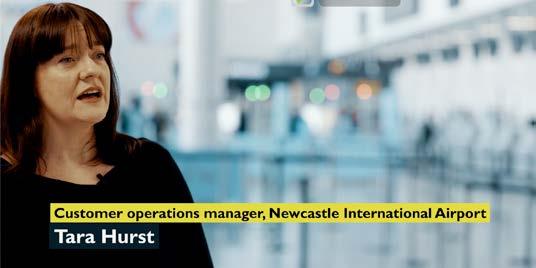
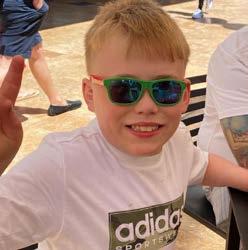
Chloe Duncan had a nightmare journey when her airline failed to notify airports of the assisted travel she’d arranged for her 10-year-old son.
Chloe wanted to take her son, who is autistic and has a chromosomal disorder, on a plane for the first time in six years to visit family in Spain.
She booked special assistance with her airline for Newcastle and Alicante airports, and swapped messages with the airline about her son’s specific needs.
But when she, a companion and her son turned up at the airports, nobody had a record of her booking and no support had been planned.
Chloe, from Bishop Auckland, said:
“Newcastle Airport were fantastic. They swung into action and gave us a quiet lane through security and a route bypassing duty free. It nearly brought me to tears how lovely the staff were.
“But staff at Alicante on the way back wouldn’t support us. They wanted to charge me more than £100 for checking in my son’s special sleeping equipment, which I’d booked, and wouldn’t give us any help through the busy airport.”
Chloe’s son has difficulty regulating his emotions and can become overwhelmed by crowds, noise, and unpredictable situations.
She said:
“There were huge queues at Alicante and he got very distressed. Other passengers were staring and even filming. It was horrific.
“My son was desperate to see his family in Spain, and I really wanted to give it a go. His siblings get to go – why should he miss out?
“But it was devastating. I’m angry, because it didn’t have to be that way.”
The aviation industry taskforce and regulators are looking at ways to make airlines more accountable for accessibility, improve training for staff, and ensure passengers get the support they need.
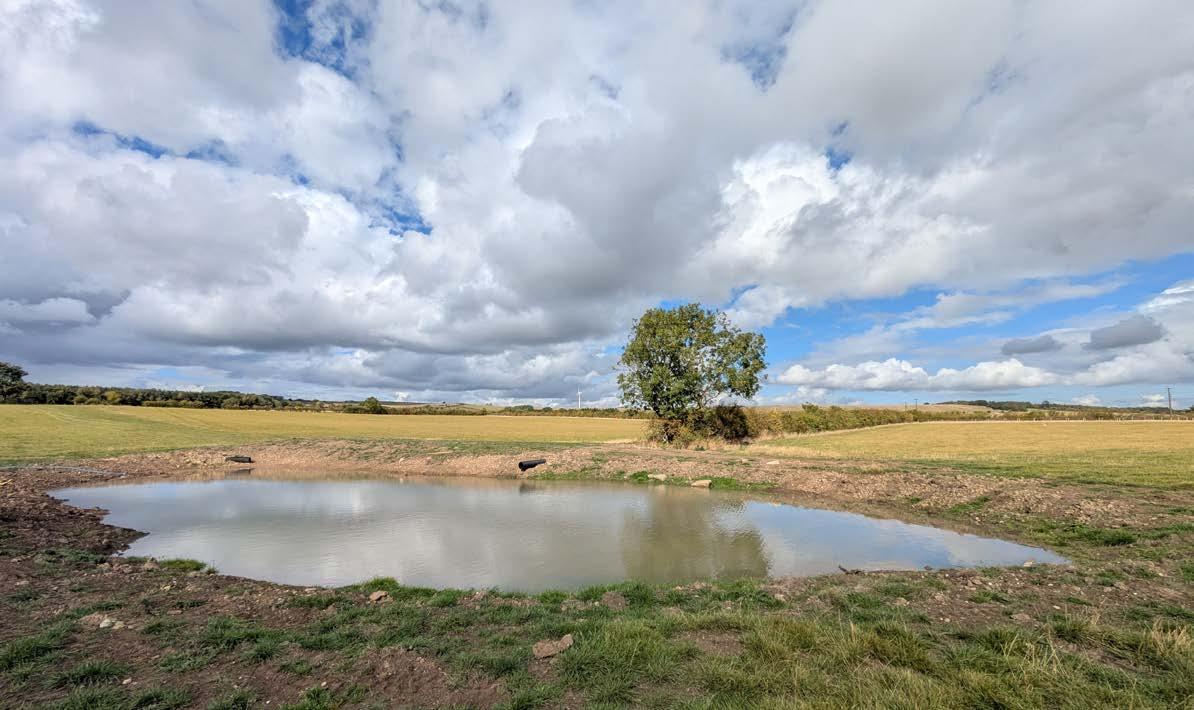
This autumn marks the beginning of a season of incredible changes as work begins to transform New Warlands Farm as part of our Growing Futures appeal.
Since launching in February with the backing of philanthropist and business leader Sir Peter Vardy, the Growing Futures appeal has had an incredible response from businesses across the region.
The appeal will transform the 78-acre site in County Durham into a regenerative farm and visitor attraction which will provide up to 70 work and training opportunities for autistic people yearly.
Now work is set to begin on construction of the farm’s visitor centre, café, cidery, and farmer’s market, with groundbreaking planned for late autumn.
Designs by architects Building Design North have been finalised and building work will be carried out by Mulberry Construction Group, with the project overseen by Turner & Townsend, a global firm with an office base in Newcastle.
John Phillipson, CEO at the North East Autism Society, says:
“Since launching our appeal with the backing of Sir Peter Vardy, organisations from across the country have offered us their support, and it’s incredibly exciting to be at the point where work can begin in the next few weeks.”
John adds: “We’re still interested in hearing from anyone with the expertise or resources to support the project, and we look forward to inviting more of the public to get involved very soon and help us change lives.”
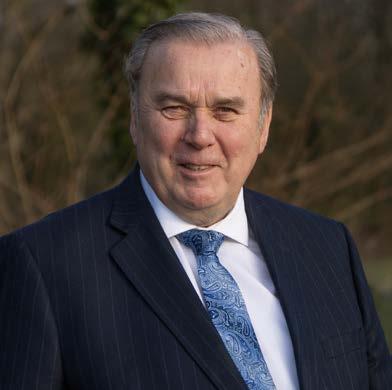
Elsewhere on New Warlands Farm, work is already underway to expand growing areas and introduce new biodiverse habitats to the farm.
Our no-dig vegetable patches are flourishing with pumpkins, and two new polytunnels have been funded by the Baily Thomas Charitable Fund, CLA Charitable Trust, and William Leech Charity to help us grow more all year round. Landscaping work has started to create a wetland area on the farm, funded by Northumbrian Water’s Branch Out Fund, which will be a feature of nature walks, and provide a home for animals like endangered water voles.
The area is already attracting dragonflies and birds, and more work is planned to transform the area, introducing aquatic plants and building a jetty.
The creation of the wetlands isn’t the only big change coming to the farm, as we prepare to plant our largest orchard yet, with funding and support from North East Community Forest.
Around 550 trees will be planted as part of this next stage of preparation to supply our apple press and café, including apple trees, pear, plum, damson, and elder.
The new orchard will more than double the amount of apple trees we have, and once matured will be the source of our apple juice and cider.
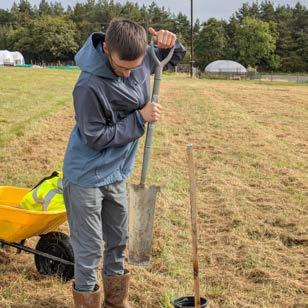
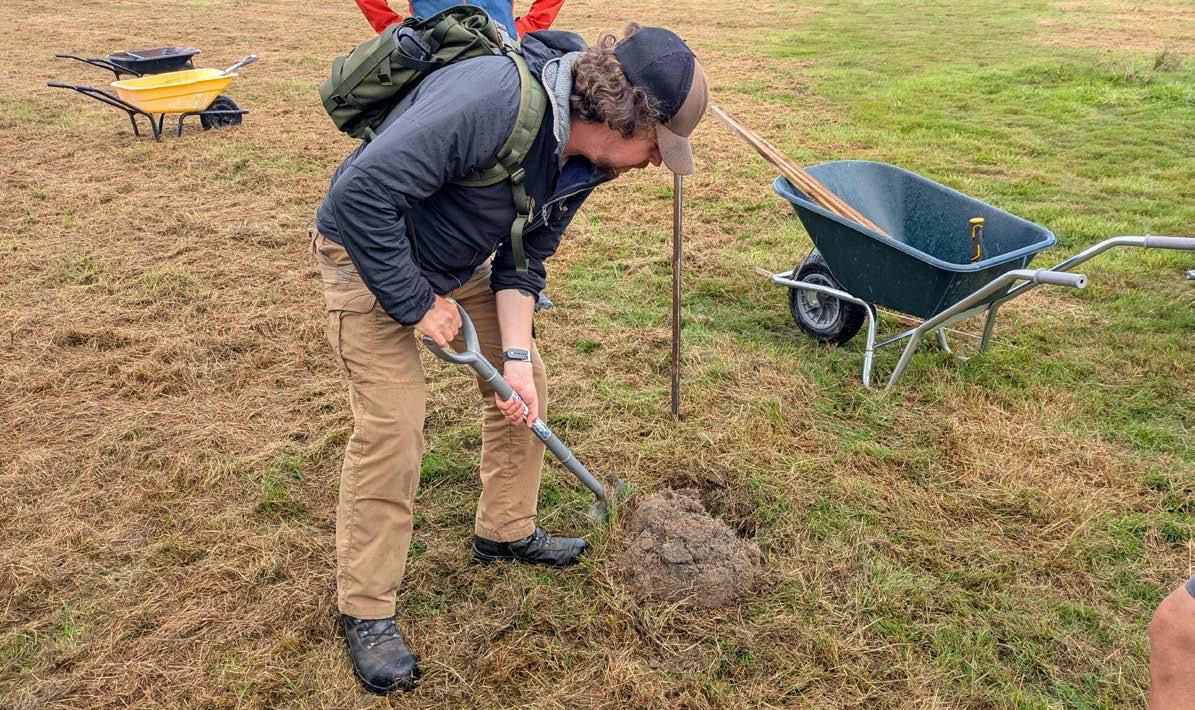
Learners from Thornbeck College have already helped North East Community Forest conduct soil testing on the site, ahead of planting work taking place in winter during the dormant period.
John says:
“The new orchard is going to be our biggest yet, and a real feature of the farm once the trees mature. The expertise of organisations like North East Community Forest and Thatchers is absolutely invaluable, and it all helps us create the best product possible once our cider press is up and running.
“It’s a huge milestone for the project, and we look forward to welcoming visitors to New Warlands Farm next year.”
Somerset based cider makers Thatchers Cider have also offered their support, lending their expertise to our plans for New Warlands Farm’s cidery, including training on orchard care and maintenance.
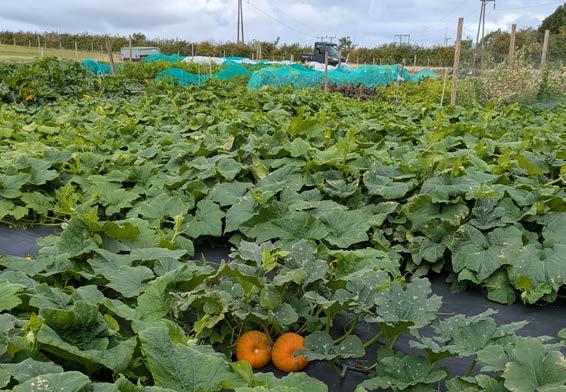
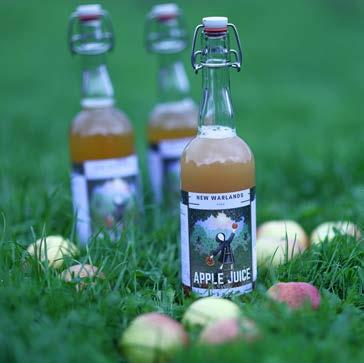
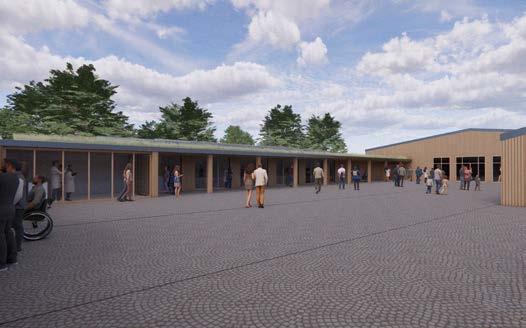
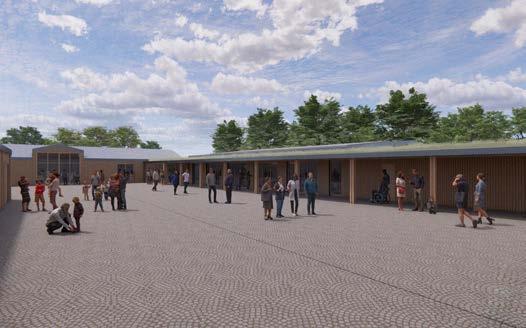
This project wouldn’t be possible without the support of organisations across the North East and beyond. If you can help with materials, expertise, or financial support, visit www.ne-as.org.uk/growing-futures
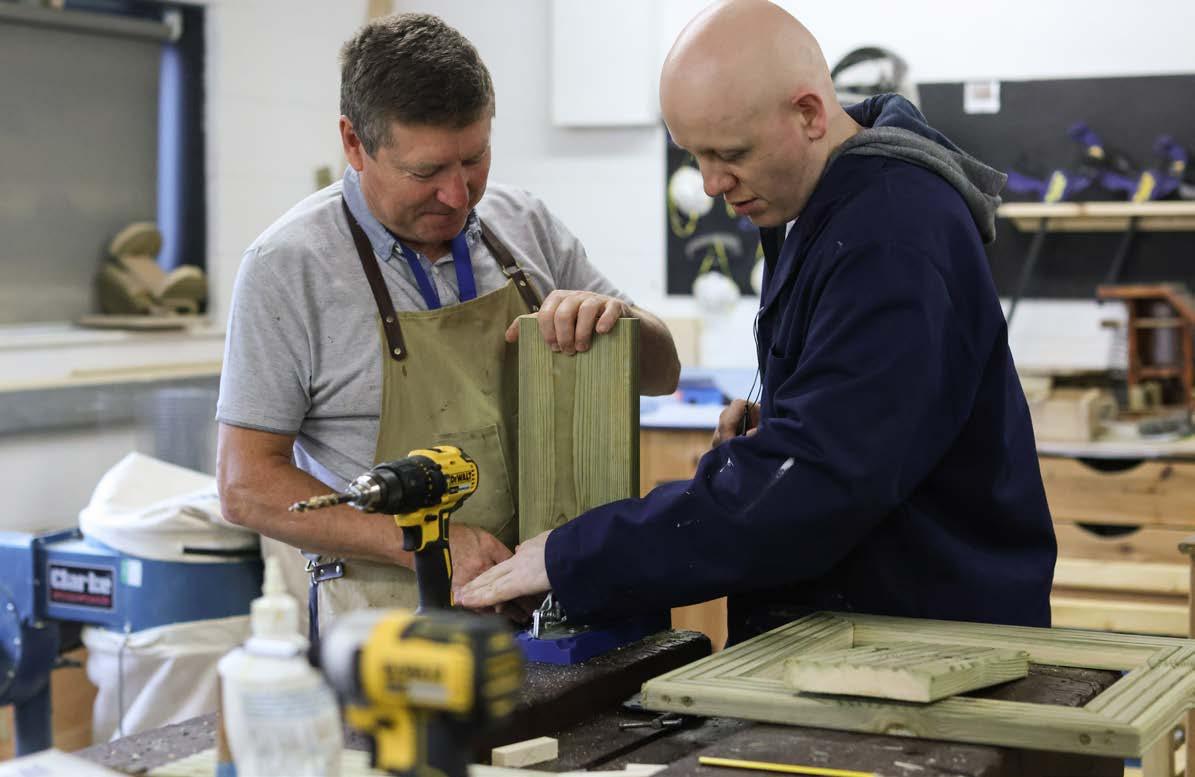

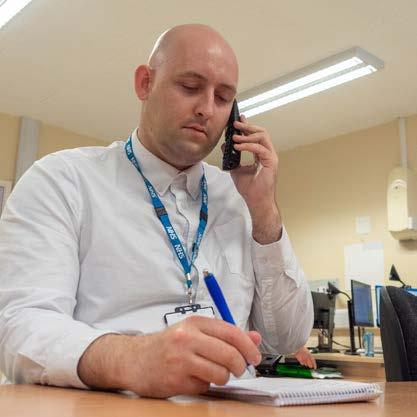
Our Employment Futures service has helped hundreds of neurodivergent and disabled people find work and improve their wellbeing, and their latest project is the service’s biggest yet.
Named Working Together NE, the programme aims to support over 200 participants across the region and is delivered in partnership by NEAS and Azure Charitable Enterprises.
It marks the first time a single Employment Futures programme has covered all seven local authority areas that make up the North East Combined Authority.
Working Together NE will support autistic and disabled people aged 18 years or older, who are deemed ‘economically inactive’ by the authority.
“That’s anyone who hasn’t been looking for work in the past four weeks, or isn’t ready to start work in the next two,”
says John Facchini, Employment Futures Manager at NEAS.
People who are classed as economically inactive must also not be in education, unless they have an EHCP, and not receiving any benefit other than universal credit or PIP.
Participants on Working Together NE will benefit from the team’s experience delivering one-to-one, person-centred job coaching, as well as potential for peer support and wraparound support focusing on improving wellbeing.
Opportunities for paid work placements are also core to the support offer, allowing participants to get hands on experience at local employers.
“Both NEAS and Azure have strengthened our relationships, and we’ve grown,” John says, “We’re now in Durham, where we weren’t before, we’re in Sunderland, where we weren’t before.”
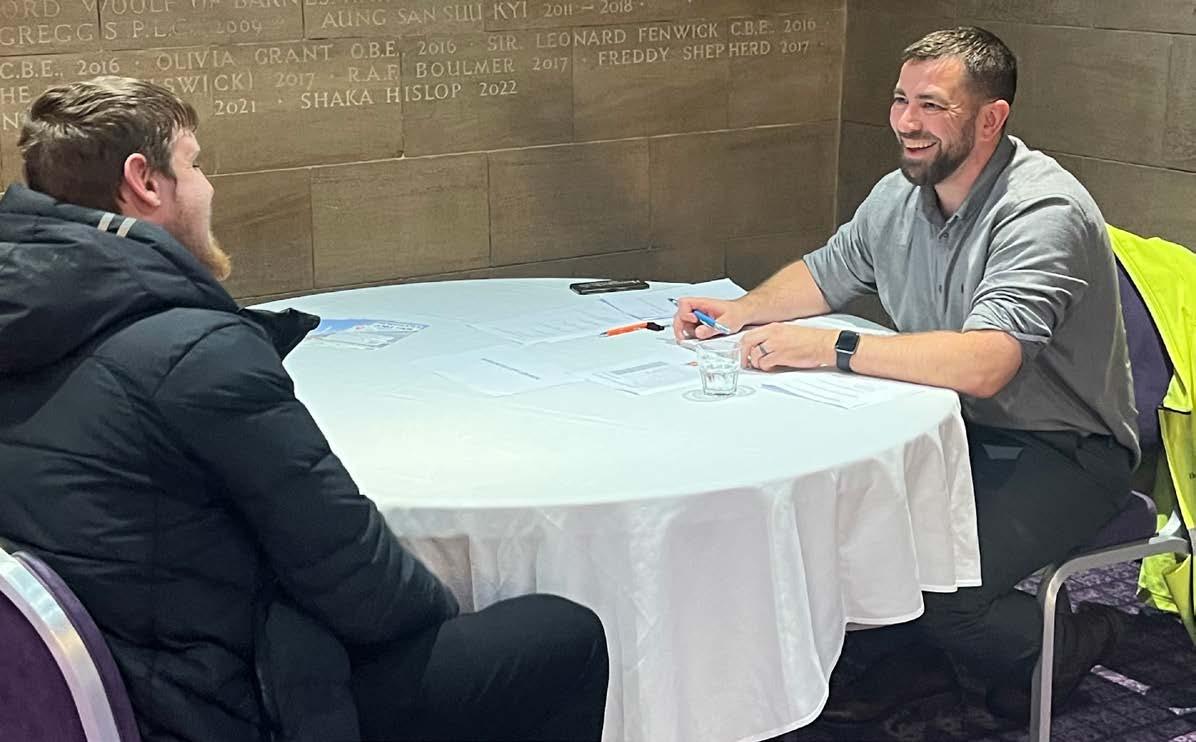
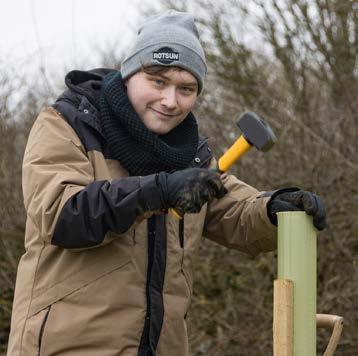
John adds:
“We’ve got a small team of employee engagement officers who will go out to look for opportunities involving paid work, or paid work placements.”
Past programmes run by NEAS and Azure have allowed the team to build relationships with a range of regional employers, which they now hope new participants can benefit from.
John says:
“We’ve engaged with about 450 employers over the last two years. We’ve potentially got up to 50 work placements already, that’s individual employers offering multiple work placements.
“But we could always benefit from more varied opportunities, so we’re getting word out on the street and being open to options.”
As part of its support offer, employment specialists from Working Together NE will also work one-to-one with employers to champion inclusive work practices, help implement reasonable adjustments, and provide in-work support to participants.
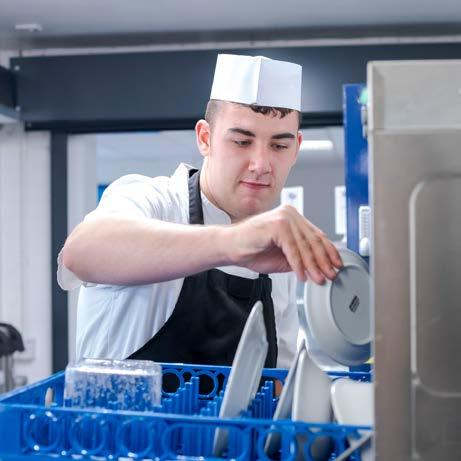
The offer also includes providing neurodiversity awareness training to employers and working with them to carry out assessments on their workplaces, to find out what can be done to make them more accessible for neurodivergent employees and placements.
The placements aim to benefit both employer and participant, and John describes it as a ‘win-win’ if more local organisations embrace neurodiversity in the workplace and benefit from hiring neurodivergent employees.
John hopes Working Together NE is just the start of things to come for region-wide employment support.
He says:
“It’s exciting for the department, and for NEAS as a whole.”
If you would like to know more about Working Together NE, visit the website at www.ne-as.org.uk/working-together-ne/
The festive season is a time for community, generosity, and giving back – and it’s the perfect chance to do something meaningful. At a time when so many charities are asking for support, choosing to fundraise for a local cause can make an even bigger difference. Every pound raised for the North East Autism Society stays right here in our region, helping autistic children, young people, adults, and their families in our communities. Your fundraising directly supports services on your doorstep, meaning you’ll see the impact of your efforts.
This year, instead of just counting down the days to Christmas, why not turn your celebrations, hobbies, or even your personal limits into a fundraiser for NEAS.
From light-hearted ideas like bake sales, quizzes, and Christmas jumper days, to bigger individual challenges such as a polar plunge, fitness streak, or marathon in fancy dress, there are endless ways to raise money while having fun.
We’ve put together a list of festive fundraising ideas to inspire you – whether you’re looking for something social and light-hearted or a challenge that pushes you to the limit.
If you would like to discuss any ideas you may have please contact the team on:
0191 4109974 or email fundraising@ne-as.org.uk
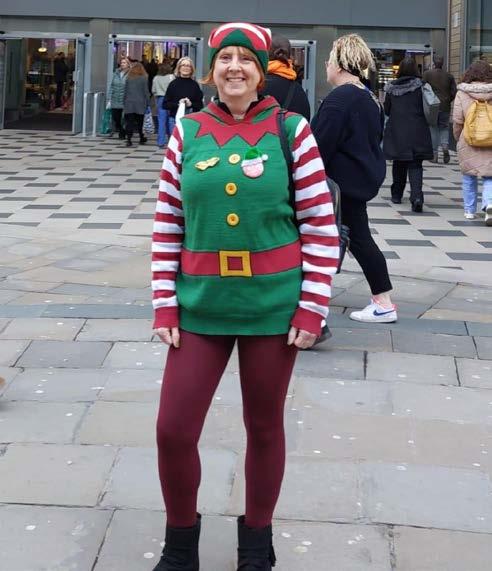
Whatever challenge you choose, the most important part is to share it and encourage friends, family, and colleagues to sponsor you. Their support will keep you motivated and help raise vital funds for our Growing Futures Appeal (read more on page 8).
Last year, one local family went all out by dressing as elves every day throughout December, raising funds and plenty of smiles along the way. Grandma Elf (Anne!) dyed her hair red and green to match her elf outfit and chose to support NEAS because of the positive impact our toddler groups have had on her family. Anne said,
“The charity has been fantastic. They’re just there for you –it’s absolutely great.” Their creativity shows just how much impact a festive idea can have.
To make your fundraising efforts even easier, don’t forget to download our festive fundraising pack, as well as our tailored toolkits for businesses and schools – packed with ideas, resources, and tips to help you spread the festive spirit while making a real difference.
This Christmas, make it count. Choose your challenge, rally your supporters, and make a real difference for autistic people and families right here in the North East.
Here’s 12 ways you can spread some Christmas spirit while raising money for the North East Autism Society.

1. Countdown to Christmas chaenge
Do a mini challenge every day in December… the more creative the better!

3. 24 hours in fancy dre
Wear a full festive costume everywhere you go for an entire day… or for the whole of December.

2. Silent Night
Stay completely silent for a full 24 hours (or more) during the busiest social season.


5. Festive Step Chaenge
Aim for 25,000+ steps every day in December.

7. Become a real-life elf on the shelf
Take Elf on the Shelf to the next level by becoming the elf yourself. Dress up in a full elf outfit and commit to a series of daily or weekly antics leading up to Christmas.
9.Gift wra ing station
Offer a gift-wrapping service at your workplace, school, or local shops. People can make a donation in exchange for wrapped presents.
4. 100km in December
Run, walk, or cycle 100km across the festive season.

6. Pre -Up Santa
Do 1,000 press-ups dressed as Santa in December.


11. Polar plunge chaenge
Challenge yourself to take an icy dip in the sea dressed in tinsel or Santa hats.

8. Winter Cycling Chaenge
Take on a long-distance bike ride in the cold while dressed in festive kit.

10. Santa fun run or walk
Join a local park run and make it a Santa Dash – or run a half marathon, marathon, or even ultra-distance in full festive gear.

12. 24 hours in fancy dre
Give up something you have / use every day in December. Chocolate, coffee, no social media?!
‘Everyone’s a little bit ADHD’
‘People with ADHD are just lazy and need to harder’try
ADHD. Four little letters that can spark big opinions and even bigger misconceptions.
Despite more awareness and acceptance than ever before, ADHD remains one of the most misunderstood neurodevelopmental differences.
To mark ADHD Awareness Month, we take a look at the many faces of ADHD and separate the facts from the frequent fiction.
‘Everyone’s a little bit ADHD’
How often have you heard the phrase ‘I’m a little bit ADHD’ or ‘everyone’s a little bit ADHD’. Well, we have some breaking news for you – this just isn’t true.
There’s likely no intended malice in such comments and people may be trying to help ‘normalise’ the challenges of ADHD. The result however, for an ADHD individual, is a feeling of dismissal of the daily struggles ADHD presents. Everyone can, and likely will, exhibit behaviours akin to the symptoms of ADHD, but that doesn’t mean they possess a neurological difference in their brain.
Losing your keys or zoning out when your boss is giving a presentation are just examples of neurotypical human behaviour.
For an ADHD person, such instances aren’t fleeting or inconsequential, they can be frequent, detrimental, and often debilitating to daily life.
Mythbusters:
‘We never had ADHD in my day’
Many people are under the illusion that ADHD, or attention deficit hyperactivity disorder to give it its’ full name, is a relatively new neurotype – but that couldn’t be further from the truth.
While it’s true that the definition of ADHD that we know today only came into existence in 1994, the history of recorded ADHD-like behaviours dates back to 1775.
That’s more than 250 years of recorded recognition. So yes, you did have ADHD in your day, there’s just more understanding, awareness, and acceptance than ever before.
‘ADHD is overdiagnosed’
If anything, ADHD is actually underdiagnosed. A recent study conducted by the British Journal of Psychiatry found that just one in nine adults with ADHD in the UK have a formal diagnosis.
This was based on a study of more than 9.5 million GP records, which identified only 0.32% of the sample size had a formal diagnosis. Compare this to the fact that around 3% of adults in the UK have ADHD and you can see that the discrepancy in the data is vast.
‘ADHD isn’t that serious’
‘We never had ADHD in my day’
Henry Shelford, CEO and Co-Founder of ADHD UK, believes that ADHD assessments actually need to increase: “The over 2 million people who have ADHD and no diagnosis are defacto struggling,” says Shelford.
“We need to increase access to ADHD Assessments in the UK to get people the help that can change their life.”
‘People with ADHD are just lazy and need to try harder’
What do the world’s most decorated Olympian, the most successful Formula One driver of all time, and Spider-Man all have in common? Yup, you guessed it, they all have ADHD.
Michael Phelps, Sir Lewis Hamilton, and Tom Holland, as well as many other notable public figures, have openly discussed their ADHD diagnoses.
Can you truly say, with a straight face, that Michael Phelps is ‘lazy’? He swims between five and six hours a day!
This particular myth seems to be born out of ignorance of what ADHD truly is, which is a developmental impairment of the brain’s self-management system. It’s nothing to do with lack of effort or motivation.
Simply put, encouraging someone with ADHD to try harder is like telling someone who has poor eyesight to ‘look harder’.
ADHD and autism often co-occur. Commonly known as AuDHD, the two neurotypes share several key characteristics such as sensory differences, intense focus on specific interests, rejection sensitivity, executive dysfunction, sleep issues, and emotional dysregulation.
According to research, approximately 21% of ADHD children are also autistic and around 28% of autistic children also meet the current criteria for ADHD.
This co-occurrence often results in internal struggles between some of the contrasting traits of both neurotypes. For example, ADHD individuals may crave novelty and exhibit impulsivity, while autistic people often seek routine and similarity.
Our family development team provides support for autistic people and their families across the North East pre, during, and post diagnosis. We can only offer support to those where autism is the primary support requirement. If you are looking for further ADHD information and support, please visit the links below.
adhduk.co.uk autistica.org.uk
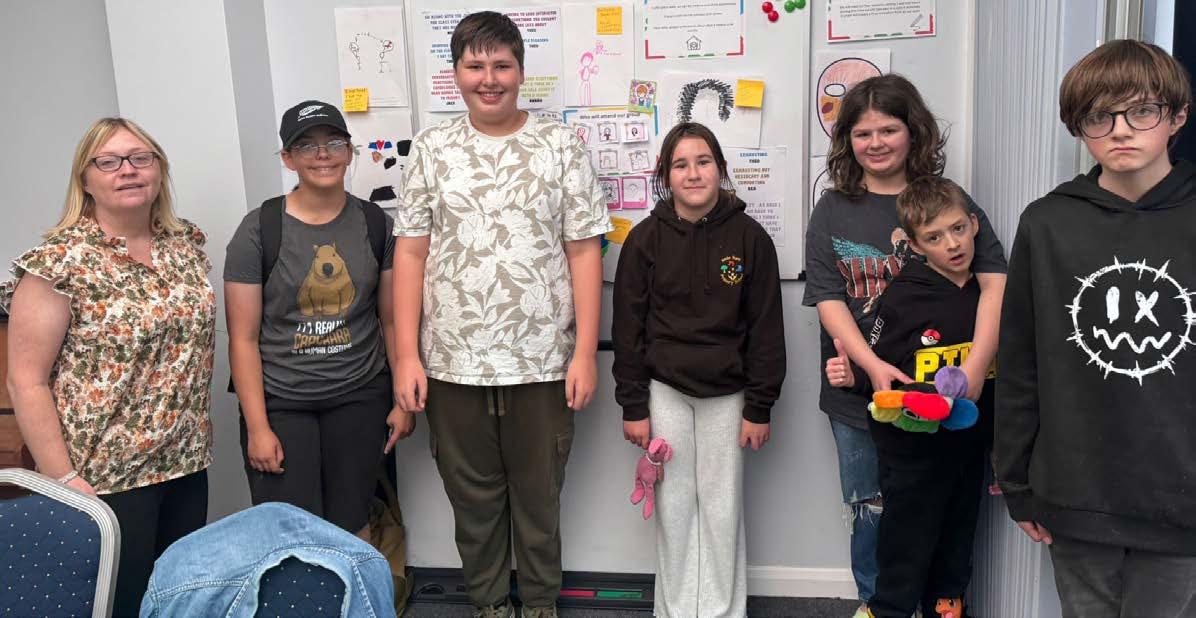
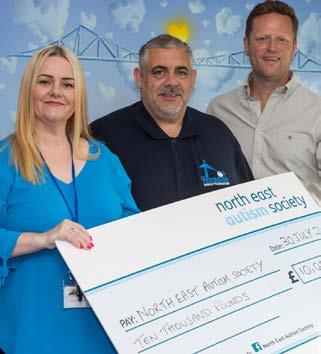
As we wave goodbye to summer and step into a new season, it feels like the perfect time to look back at what we’ve achieved over the past few months. From speaking out on misinformation to exciting projects, acts of kindness from our community to welcoming back our pupils and staff, there’s been no shortage of moments to celebrate. We would also like to welcome our new Interim Director of Education, Tracey Train.
Tracey has worked for NEAS since 2017 and started her career as Training Manager then took on the role as Principal of Mackenzie Thorpe Centre and Kiora Hall.
“I’m passionate about continuing to support our learners, families, and staff,” said Tracey. “It’s been lovely to see our learners settle back into school, ready for the academic year ahead. It’s a privilege to be part of a team that puts learners at the heart of everything we do.”
When false claims about autism made headlines in the US last month, including suggestions that paracetamol in pregnancy could cause autism, we knew we had to speak up. Autism is not an illness to be “cured”, and research shows no such link. By sharing clear, evidence-based information, we helped put the focus back where it belongs: on acceptance, understanding and respect.
Read More
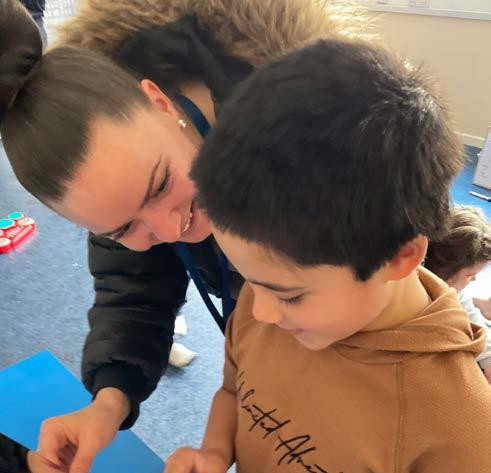
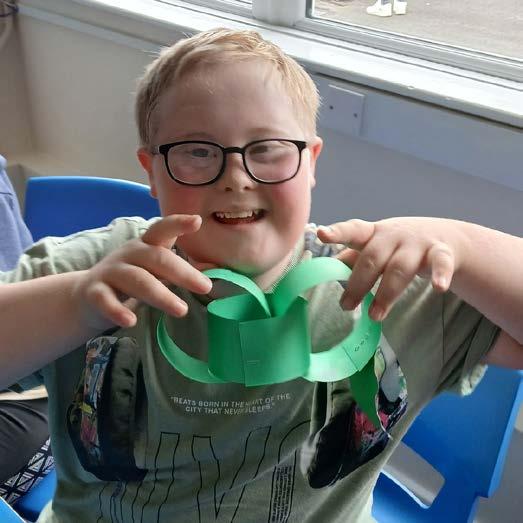
Our new Autism Activists project has been tackling the important issue of masking. This project has sparked powerful conversations about what masking means, why it happens, and how we can create a world where people feel safe to be themselves. It’s inspiring to see young activists leading the way and pushing for change that will make a real difference.
Find out more
When one of our school minibuses was vandalised, causing £16,000 of damage, we were overwhelmed by the response from our community. Thanks to an incredible £10,000 donation from the Teesside Family Foundation — and additional support from local people and businesses across region — we can cover the costs to lease a replacement minibus, until a permanent vehicle is ready.
Read More
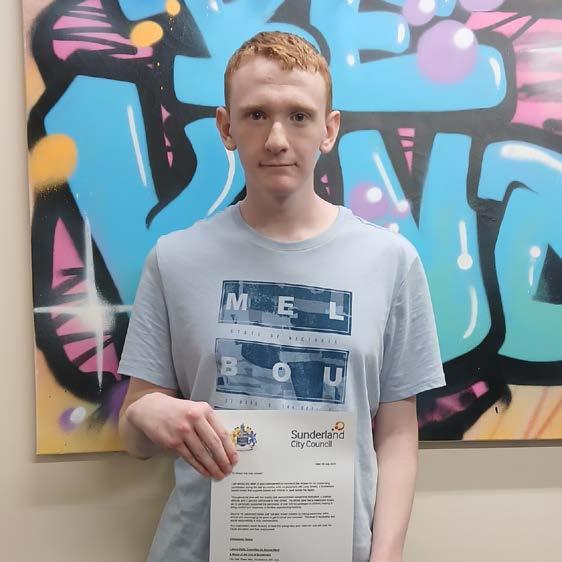
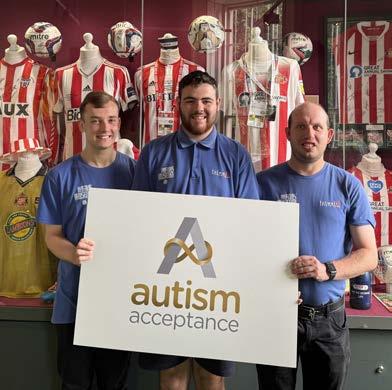
We were thrilled to see the National Football Museum recognised with our Gold Acceptance Award for its outstanding work in supporting autistic visitors. From inclusive design to thoughtful engagement, the museum has shown what true teamwork looks like and why creating welcoming spaces matters so much.
Read More
It’s been a busy few months, but the common thread for this quarter is community. To everyone who has been part of these moments - thank you.
Together, we’re making a difference.
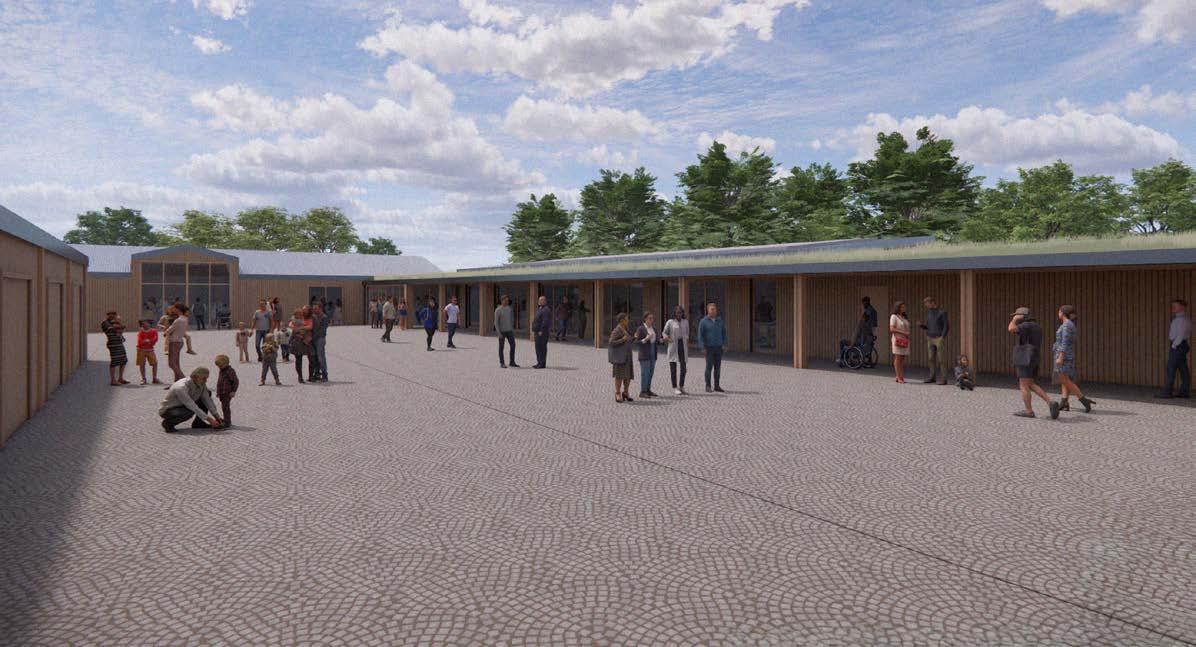
Since 2010, the North East Autism Society has been developing New Warlands Farm into a place where autistic people can thrive.
In 2023, we secured planning permission to grow the farm into something special; a visitor centre, cider press, workshop and café – which will support autistic and neurodivergent people directly by offering work placements and training opportunities.
In 2025, our 45th anniversary year, we are launching our Growing Futures appeal to help make our most ambitious project into a reality and transform the lives of autistic and neurodivergent people in our region.
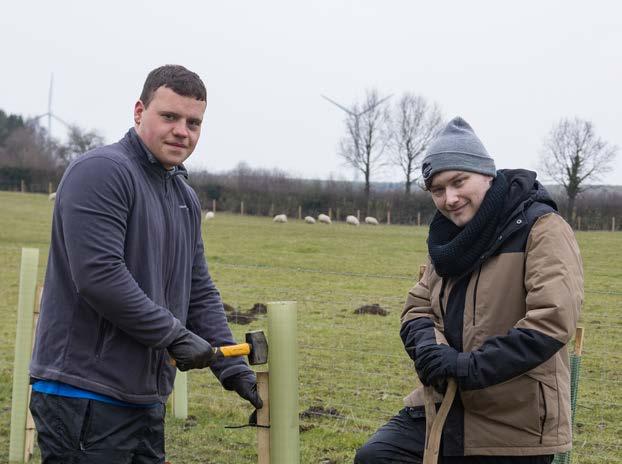
Our £4.4 million vision for New Warlands Farm is the charity’s most ambitious project yet. Whether you’re a business or an individual, there are many different ways to get behind our appeal and help create something that will benefit autistic people – and the North East community – for years to come.
To find out more about the appeal visit: ne-as.org.uk/growing-futures Scan the QR to donate
If you have any questions, get in touch with our fundraising team on 0191 410 9974 or email fundraising@ne-as.org.uk